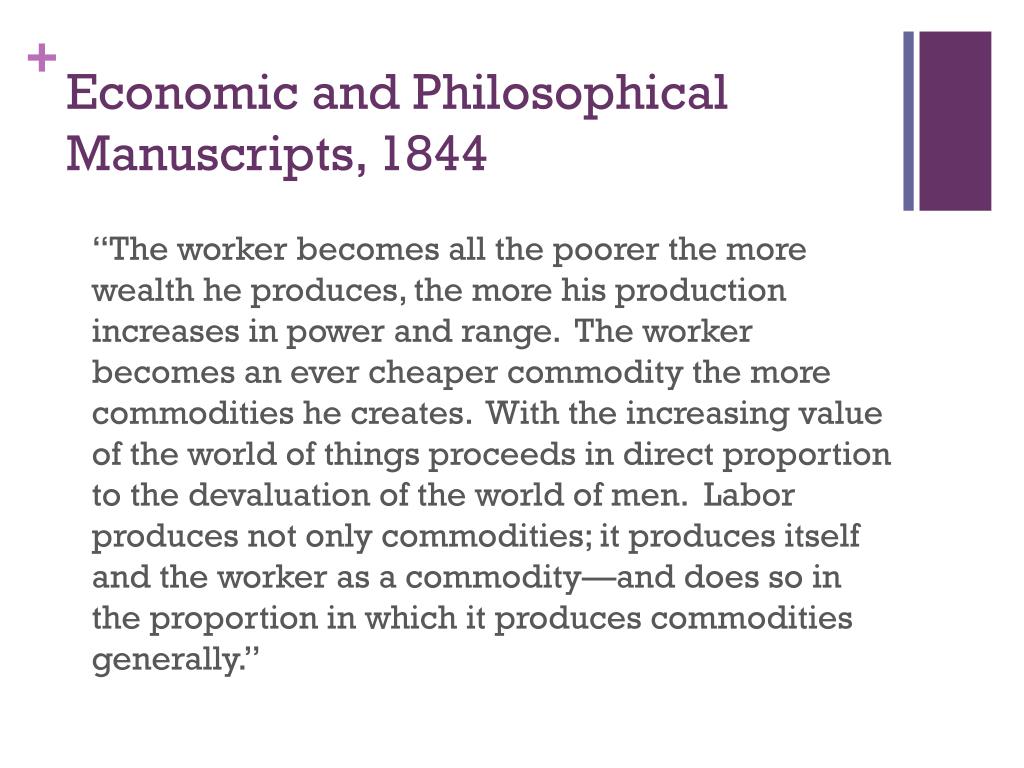
While capitalists promise that a larger pie will increase everyone’s share, Marx predicts that greater wealth will generate greater inequality. Employment contracts are thus not true contracts because the employer can always choose not to hire but the employee cannot choose not to work. Marx posits this relationship as fundamentally unequal since the laborer has to work to live whereas the owners of large capital assets such as farms or factories can always hire or lay off people to keep profits high under different economic conditions. The Paris Manuscripts begin with the distinction between labor (i.e., workers) and capital (i.e., the corporations that employ workers). Marx frames political economy as a clash between labor and capital and proposes that the only way to satisfy the underlying needs of mankind is for the class struggle to culminate in the common ownership of all property under communism.

The Paris Manuscripts attempt to create a union between philosophy and political economy as the focus shifts from an examination of labor, money, and property to inquiries regarding the nature of human worth and purpose. Marx attempted to reconcile philosophy with radical politics by utilizing the Hegelian concept of dialectic, or fusing opposing concepts into a rational synthesis. After his newspaper was shut down by government censors, Marx became an itinerant freelance writer, eventually settling in Paris and developing his views on both philosophy and political economy.įor Marx, the Young Hegelians were too abstract and removed from the concerns of daily life, while the socialists had a program for action but no solid intellectual foundations. Too politically suspect to earn a teaching position, Marx sought work as a journalist and became sympathetic with the socialists and communists who deplored the system of industrial capitalism that had taken hold in Europe. After completing his doctorate in philosophy at the University of Jena in 1841, Marx considered a career in academia, but his university years had drawn him to a radical circle known as the “Young Hegelians” who were most famous for publishing philosophical critiques of Christianity, thus infuriating a Prussian monarchy that claimed to rule by divine right. The Paris Manuscripts were written at a crossroads in Marx’s career. Struik (New York: International Publishers, 1964). This summary is based on the translation by Martin Milligan, edited with an introduction by Dirk J.


 0 kommentar(er)
0 kommentar(er)
